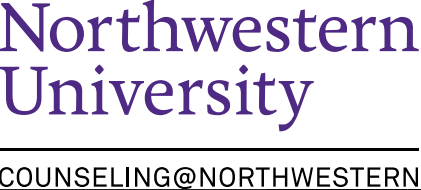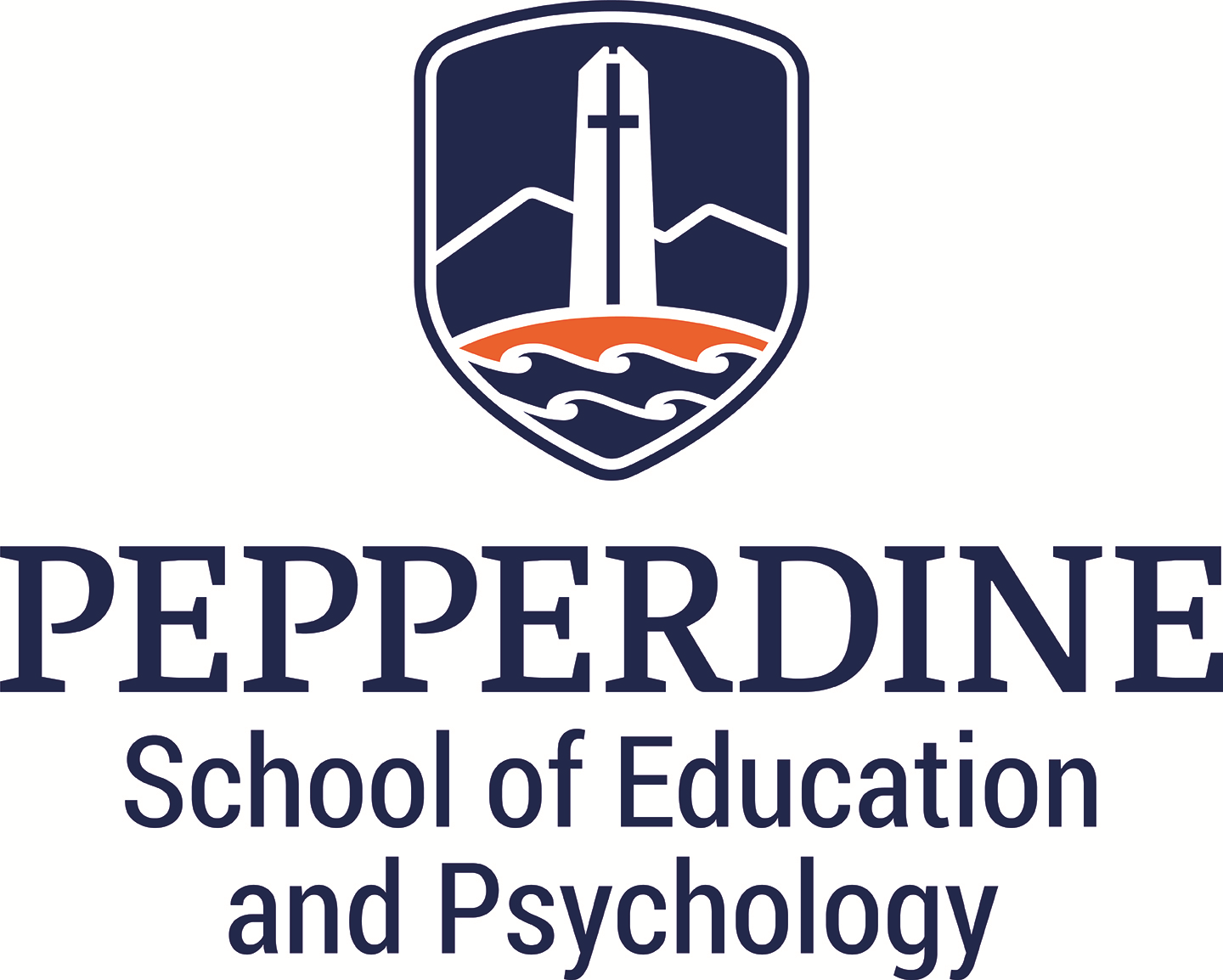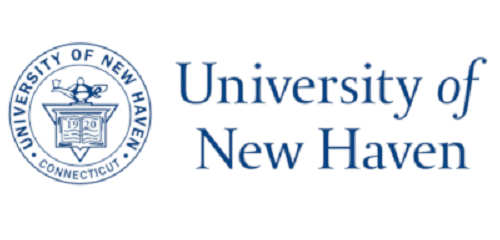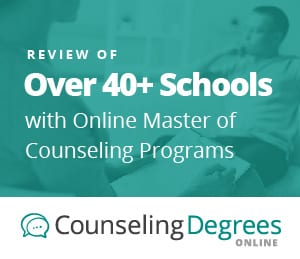 Walden University : MS in School Counseling (CACREP Accredited, five specializations to choose from)
Walden University : MS in School Counseling (CACREP Accredited, five specializations to choose from) Walden University : MS in Clinical Mental Health Counseling (CACREP Accredited, six specializations to choose from)
Walden University : MS in Clinical Mental Health Counseling (CACREP Accredited, six specializations to choose from) Grand Canyon University : Master's Degree in Counseling (Affordable Program with No Out of State Tuition)
Grand Canyon University : Master's Degree in Counseling (Affordable Program with No Out of State Tuition) Capella University : Bachelor of Science in Psychology (Capella University is HLC accredited)
Capella University : Bachelor of Science in Psychology (Capella University is HLC accredited) Capella University : BS in Psychology - Applied Behavior Analysis ((Online))
Capella University : BS in Psychology - Applied Behavior Analysis ((Online)) Liberty University : MA: Clinical Mental Health Counseling (CACREP Accredited) (Online with required intensives)
Liberty University : MA: Clinical Mental Health Counseling (CACREP Accredited) (Online with required intensives) Northwestern University : Online MA in Counseling (CACREP Accredited)
Northwestern University : Online MA in Counseling (CACREP Accredited) Capella University : Counseling & Therapy (CACREP Accreditation. Master's and PhD options available. )
Capella University : Counseling & Therapy (CACREP Accreditation. Master's and PhD options available. ) Pepperdine University : Master’s Clinical Psychology (Licensed Professional Counselor) (No GRE required)
Pepperdine University : Master’s Clinical Psychology (Licensed Professional Counselor) (No GRE required)Some schools may also offer students the opportunity to participate in bachelor's or master's equivalency programs to shift their educational experience to the music therapy field. Students who have already completed either of these degrees in a related subject can participate in these transitional programs and kick-start their eventual careers.
Through these online music therapy programs, students can explore the therapeutic foundation of music in the field of mental health. Music therapy counseling has the potential to grow quickly, becoming a popular form of individual therapy for clients presenting with a wide range of mental health, behavioral, and social needs.
What is Music Therapy?
Music therapy is a unique form of counseling that involves direct contact with various forms of music. Therapists in the field may work with clients as they create their own music, which can be a form of self-expression that allows them some creative release of stress or anxiety.
Therapy may also include listening to music under the direction of a counselor. This can provide clients with feelings of relaxation or emotional release that can assist in coping with or healing emotional wounds.
The use of music therapy has shown to be beneficial for treatment of children diagnosed with Autism Spectrum Disorder (ASD) due to its calming effect on sensory processing. This alternative treatment option can also be beneficial when combined with other calming sensory activities during ASD treatment.
Forms of music therapy also include playing instruments, therapeutic guidance, and dance. Professionals trained in this type of therapy can provide instruction, assistance, and support to clients as they find self-expression and emotional regulation through music.
Consider a Featured Online Counseling Program
| School and Program Information | Online Program? Entry Requirements |
Course Information |
|---|---|---|
| Walden University
MS in School Counseling
 CACREP Accredited CACREP Accredited |
✔ Online
GRE scores not required |
School counselors help students overcome obstacles and shape successful futures. Walden’s online MS in School Counseling program will give you a solid foundation in school counseling theories, approaches, and best practices while enabling you to gain hands-on experience. Learn More |
| Walden University
MS in Clinical Mental Health Counseling
 CACREP Accredited CACREP Accredited |
✔ Online
GRE scores not required |
Mental health counselors play a valuable role in helping people cope with life’s challenges. Walden’s online MS in Clinical Mental Health Counseling program can help you become the competent, compassionate counselor you know you can be. Learn More |
| Grand Canyon University
Master's Degree in Counseling
HLC and NASAC Accredited |
✔ 100% Online
Over 14 Specializations Available |
Affordable with No Out of State Tuition Learn More |
| Capella University
Bachelor of Science in Psychology
|
✔ Online
|
Choose from General Psychology, Applied Behavior Analysis or Pre-Counseling specializations Learn More |
| Capella University
BS in Psychology - Applied Behavior Analysis
|
✔ Online
No GMAT or GRE required |
Gain skills and knowledge to help transform the lives of people living with autism and other intellectual disabilities. Study with confidence in a program that meets the educational requirements for eligibility to take the Board Certified Assistant Behavior Analyst® (BCaBA) examination. Applicants must meet additional requirements to qualify. Learn More |
| Liberty University
MA: Clinical Mental Health Counseling (CACREP Accredited)
 CACREP Accredited CACREP Accredited |
✔ Online
Online with required intensives |
Our CACREP-accredited master’s in counseling degree online can help you become an ethical, well-trained mental health counselor with the knowledge, values, and skills you need to empower others to make positive changes in their lives. Online and on campus. Training Champions for Christ since 1971. Learn More |
| Northwestern University
Online MA in Counseling
 CACREP Accredited CACREP Accredited |
✔ Online
GRE Not Required Bachelor's Required |
Prepare to pursue licensure in as few as 18 months Learn MoreFull-time, part-time, and accelerated track options available |
| Capella University
Counseling & Therapy
 CACREP Accredited CACREP Accredited |
✔ Online
GRE Not Required |
Offering master’s degree programs in clinical mental health counseling and school counseling. Doctoral degree program available in counselor education & supervision. No GRE required. Learn More |
| Pepperdine University
Master’s Clinical Psychology (Licensed Professional Counselor)
|
✔ Online
No GRE Required Bachelor's Degree Required |
Bachelor's holders can prepare to become a licensed professional counselor online. With no GRE scores required to apply, the 24 month online MA in Clinical Psychology from Pepperdine allows you to advance your career and be a catalyst of change. Learn More |
*Sponsored Counseling Programs
Online CACREP Accredited programs | Online MPCAC Accredited programs
Music Therapy Online Degree Levels
Online music therapy programs can be found most commonly at the bachelor's and master's levels. The AMTA provides prospective students with resources pertaining to open programs with direct specialization, as well as those that provide equivalency programs for existing degree holders.
Bachelor's in Music Therapy Degree
A bachelor's in music therapy is the minimum degree requirement for certification as a Board Certified Music Therapist. These programs consist of approximately four years of educational courses designed to help train future counseling professionals.
A bachelor's program can provide students with introductory insight into the therapeutic methods that therapists in the field use. Since graduates of this program can sit for the board examination in music therapy, significant coursework involves individual therapies, insight into multiple mental illnesses, and various applications and methods.
Master’s in Music Therapy Degree
Master's in music therapy programs are also popular options. At the master's level, students may receive more in-depth training in various music therapy techniques, as well as the opportunity to train and practice in a clinical setting or practicum.
One benefit of pursuing a master's in music therapy is that programs can be found in-person or online. Music therapy students transitioning from other degree specializations may enroll in equivalency programs created to apply course credit from their current degree programs.
Online Master of Music Therapy Counseling Programs
Future music therapy counselors looking for a convenient educational experience should consider online programs as a way to quickly meet their goals. This unique option can provide students with an uncommon specialization, which can lead to exciting experiences in the field.
In an online environment, students may log in to their courses each week through their university's website. Depending on the course, students may be responsible for completing assignments, research, or communicating with other learners to measure attendance.
Entirely Online Programs
Fully online music therapy counseling programs can benefit current professionals in the field seeking fresh career options, and new learners who prefer the flexibility offered by remote programs. As you consider online music therapy programs, be sure to seek out programs approved by the AMTA for future certification.
Colorado State University currently provides a wealth of opportunities for prospective music therapists looking for certified degree programs. CSU's music therapy programs are approved by the AMTA and can lead to board certification after completion.
The online Master's in Music Therapy at CSU offers both thesis and non-thesis options for graduate learners. The standard program involves 30-32 credit options depending on thesis completion, and can be completed in around two years.
In an online master's in music therapy program, students engage in online courses related to music and its effect on emotional regulation and development. These programs build upon existing experience to improve clinical skills.
 Walden University - MS in School Counseling (CACREP Accredited)
Walden University - MS in School Counseling (CACREP Accredited)
 Walden University - MS in Clinical Mental Health Counseling (CACREP Accredited)
Walden University - MS in Clinical Mental Health Counseling (CACREP Accredited)
 Grand Canyon University - Master's Degree in Counseling (NASAC Accredited)
Grand Canyon University - Master's Degree in Counseling (NASAC Accredited)
 Capella University - Bachelor of Science in Psychology (Capella University is HLC Accredited)
Capella University - Bachelor of Science in Psychology (Capella University is HLC Accredited)
 Capella University - BS in Psychology - Applied Behavior Analysis (Capella University is HLC Accredited)
Capella University - BS in Psychology - Applied Behavior Analysis (Capella University is HLC Accredited)
 Liberty University - MA: Clinical Mental Health Counseling (CACREP Accredited) (CACREP Accredited)
Liberty University - MA: Clinical Mental Health Counseling (CACREP Accredited) (CACREP Accredited)
 Northwestern University - Online MA in Counseling (CACREP Accredited)
Northwestern University - Online MA in Counseling (CACREP Accredited)
 Capella University - Counseling & Therapy (CACREP Accredited)
Capella University - Counseling & Therapy (CACREP Accredited)
Music Therapy Courses
Students considering music therapy online programs should explore the core coursework and electives that appear in the program curriculum. This unique health care field can offer an alternate viewpoint of mental health and the effects of music during the therapy process.
Music Therapy History
This foundational course expands students’ knowledge of music’s role in history and culture in wider society. Students engage with philosophical questions related to music, its purpose, and its benefits for those who hear and make it.
Music Therapy throughout the Lifespan
Many music therapy curricula include courses that delve into the influence of music and psychology at different points in life. This includes how music therapy can assist with children’s development and their relationships with peers and authority figures, and its use in gerontology to help elderly clients as they age.
In both cases, and at every stage in between, music therapy is a strong tool for supplementing the ability to heal and deal with change.
Neuroscience and Music Therapy
This popular course in music therapy degree programs studies the relationship between music and neuroscience. Coursework examines the physical effect music can have on the brain, how different kinds of music influence chemical release and the construction of new neural pathways, and how music education can treat a variety of psychological disorders.
Students also have the opportunity to create their own unique methods of music therapy application as they transition into the field.
Path to Working in Music Therapy
- Bachelor’s Degree: The bachelor’s in music therapy is the minimum degree requirement to pursue board certification. Program details vary from school to school, but often use an interdisciplinary approach to learning that engages students in musical theory and music performance, as well as psychology and research skills. Most bachelor’s programs can be completed in around four years.
- Master’s Degree: Master’s programs build on and refine a bachelor’s education, with a focus on harmonizing evidence-based practices, experience in clinical practice settings, and expanding students’ background with neuroscience as it relates to music. A master of music therapy program typically takes two years to complete.
- Internship: The Certification Board for Music Therapists (CBMT) outlines an internship requirement for future certification. Approved bachelor’s or master’s programs may provide unique requirements for internships, which can be a part of an overall degree program. Completion of this internship can help students qualify for board examination.
- Examination and Certification: The CBMT exam is required for certification. Once certified, candidates hold certification for five years before requiring renewal. Some states also require board certification for licensure or practice requirements.
- Licensure: Select states have additional certification and licensing requirements. If you intend to practice in Nevada, North Dakota, Oklahoma, Oregon, Rhode Island, Utah, California, Connecticut, Georgia, New York or Wisconsin, be sure to check for additional guidelines.
Important Music Therapy Organizations to Know
Music therapy can be a fulfilling career option for creative and caring professionals. When you have completed your educational requirements, received certification, and started working in the field of music therapy, professional organizations can offer support as you transition from student to practitioner.
These music therapy organizations provide a wide range of resources including networking opportunities, research, and new practices to members.
American Music Therapy Association (AMTA)
One of the most important agencies for you to be familiar with during your career is the American Music Therapy Association (AMTA). The AMTA agency is responsible for approving degree programs that lead to certification and can be an excellent resource for upcoming and current practitioners.
Certification Board for Music Therapists (CBMT)
The Certification Board for Music Therapists (CBMT) is another important agency that you should know inside and out prior to your educational experience. In order to become certified as a Music Therapy Counselor, you must successfully pass an examination administered by this agency.
Your initial certification and re-certifications are handled by the CBMT, making it an important organization to stay current with throughout your career. Your involvement with the agency can help you stay up to date with current changes to the field and the certification process.
Music Therapy Online Degree Career Options
Music therapists can pursue careers in a number of professional settings, and can provide services to clients with diverse emotional, physical, and behavioral needs.
When you first enter the field, you may find it beneficial to pursue positions in general mental health organizations. This setting can provide you with rewarding introductory experiences alongside other certified mental health practitioners, facilitating an opportunity to build your core competencies, such as empathy, resourcefulness, and critical analysis.
Local mental health organizations or specialty clinics typically employ counseling professionals from a wide range of concentrations, which is why many new therapists tend to find their start with local agencies.
Music therapists can also partner with Board Certified Behavior Analysts to assist in the care and treatment of clients with Autism Spectrum Disorder. Music therapy has proven an effective tool for working through sensory dysfunction in children with ASD.
Alternative career settings for music therapists include rehabilitation centers, cancer treatment facilities, and even pain management clinics. Each of these clinical settings allows you to work with clients who are in dire need of therapeutic services.

 Pepperdine University - Master’s Clinical Psychology (Licensed Professional Counselor)
Pepperdine University - Master’s Clinical Psychology (Licensed Professional Counselor)

















